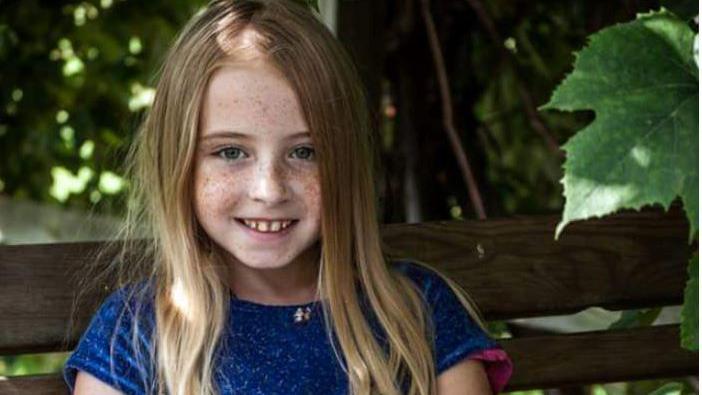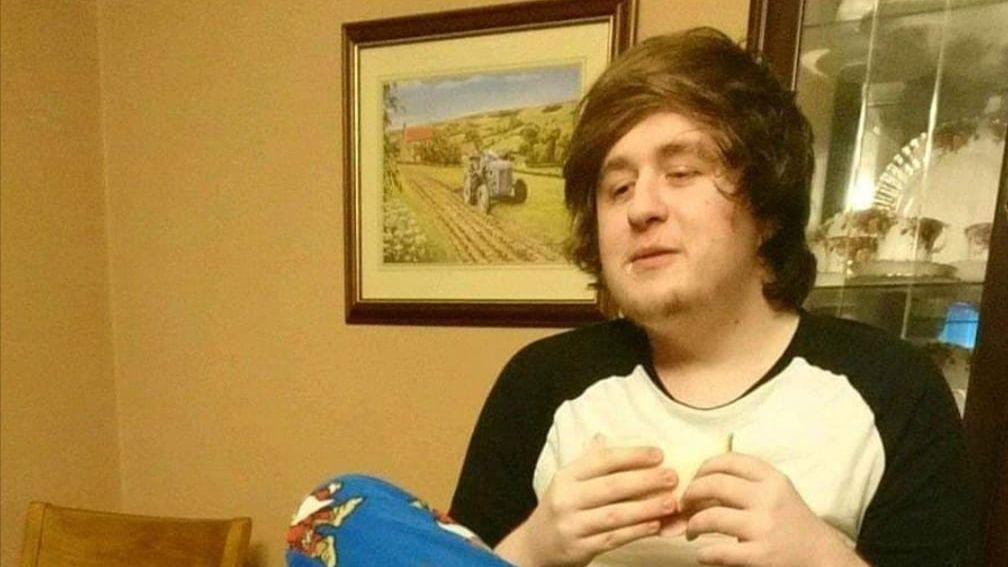Justice minister calls on McCartney victims to come forward
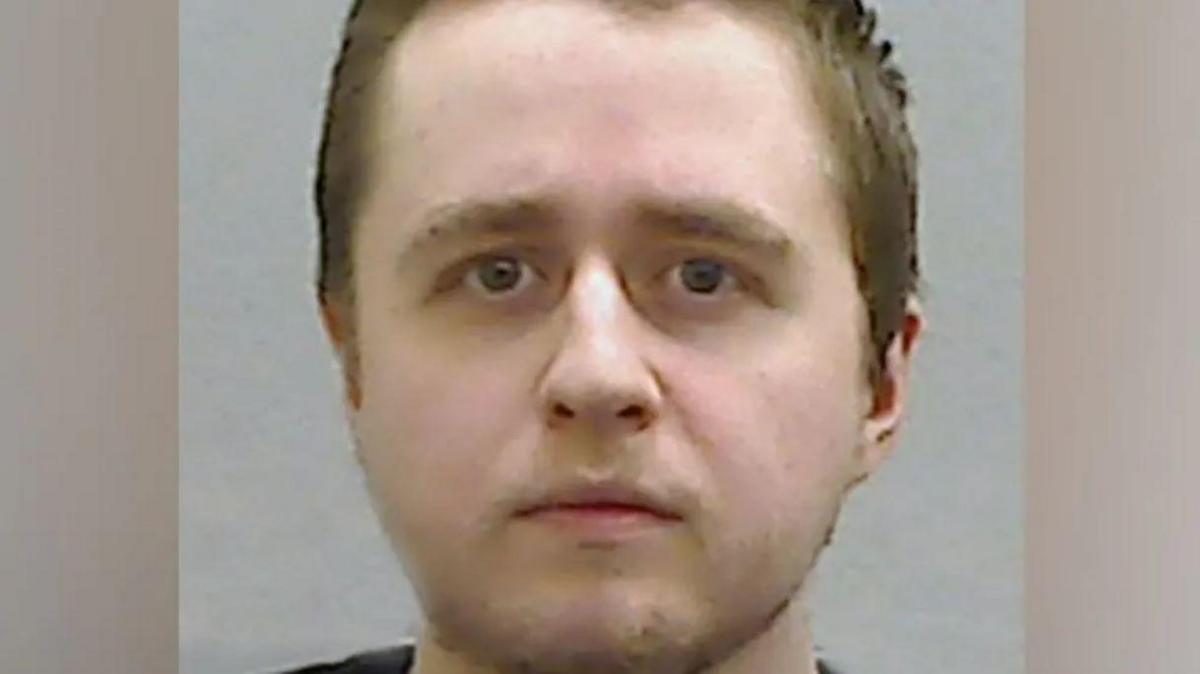
Alexander McCartney has been in custody since his first court appearance in July 2019
- Published
Justice Minister Naomi Long has called on anyone who has been abused by Alexander McCartney to come forward.
On Friday, McCartney, 26, from County Armagh, was given a life sentence with a minimum of 20 years in jail for the extreme online sexual abuse of children and the manslaughter of a 12-year-old girl.
He had admitted 185 charges - including more than 50 blackmail offences.
He pleaded guilty to manslaughter after Cimarron Thomas, 12, took her own life in 2018 while he was abusing her.
Long said it was "really distressing" for officers on the case that some of his victims were still unidentified.
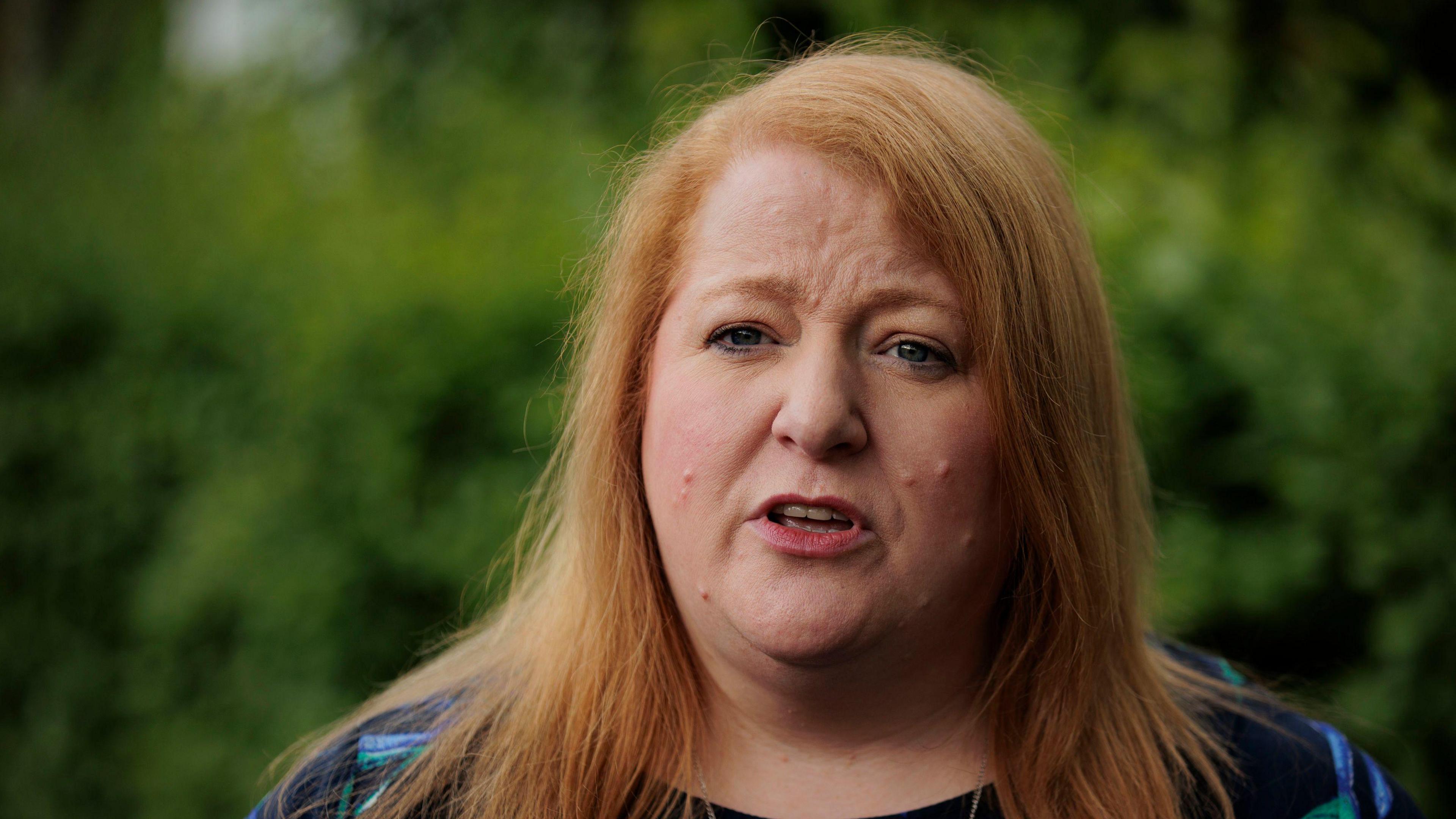
Justice Minister Naomi Long says many of Alexander McCartney's victims many never be identified
On Friday, Mr Justice O'Hara told Belfast Crown Court that McCartney, who has been in custody for five years, would not be considered for release before 2039.
Now one of the world's most prolific online child abusers, he created fake personas to target as many as 3,500 victims, aged 10 to 16, from more than 30 countries.
This case focussed on just 70 of the victims in order to provide a manageable caseload for the court.
Speaking to BBC Radio Ulster's Good Morning Ulster programme, the justice minister called on anyone who has been abused by McCartney to come forward.
She said the "sad part" of the case is that some victims may never be identified.
"I would certainly encourage anyone who has been abused in this way by McCartney or by others to come forward to their local police to tell what is happening," she said.
"Many of these children were terrified of what would happen to them if they were to say what they had done because they felt guilty about their behaviours.
"Nobody should ever feel frightened having been put in this situation. They are the victim and if somebody is being blackmailed in this way I would really encourage them to reach out for help.
"You will be treated as a victim and not a criminal."
Long also praised the officers involved in the case. She said they spent hours "watching material that no human being should ever have to see".
Online safety
Long said that although telecommunications is not a devolved matter, she had concerns Westminster's legislation had not gone far enough.
She said allowing people to have unverified social media accounts, with no way to connect the accounts to the person who owns them, can pose a “huge risk”.
“That doesn’t mean somebody can’t use a pseudonym to go online perhaps some people for work reasons or privacy reasons who don’t want to go online under their own name,” she said.
However, she added this is “very different to those who are systemic abusers who use their anonymity in order to manipulate, control and coerce”.
Rory Innes, CEO of The Cyber Helpline, which offers free help to victims of cybercrime and online harm, told the BBC's Talkback programme that “this is a case that is reflective of what is happening every day online.
"We know there are at least 5 million victims of cyber crime in the UK every year, we know that 87% of those who report it to police get an immediate ‘no further action’, and through the justice process that number ends up being 98.1%.
"So we have a system right now that even when people do come forward for help, they're very unlikely to get that support," he added.
Mr Innes went on to say how "there's nothing particularly technical" in how McCartney operated and that "there should be more onus on social media and internet platforms to know who their users are".
What did McCartney do?
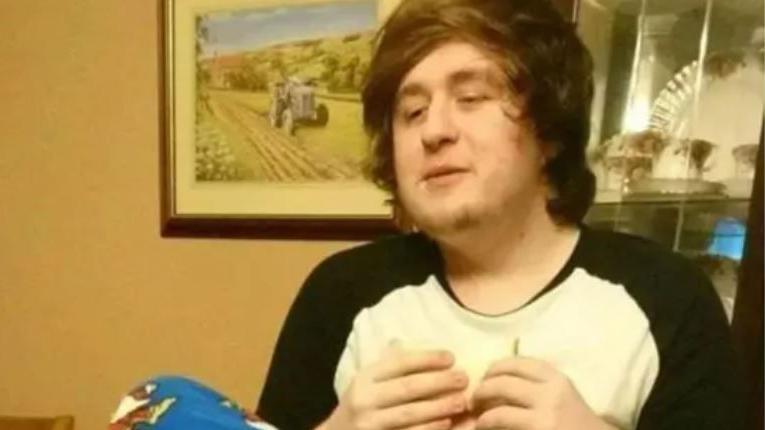
Alexander McCartney has been jailed for life for his litany of crimes
Warning: Distressing details of extreme child abuse and strong language are mentioned in the section below.
Alexander McCartney carried out a litany of crimes between 2013 and 2019.
He approached the vast majority of his victims on Snapchat, although on a small number of occasions he used other social media sites including Instagram and Kik.
On his 64 devices, he pretended to be a young girl to lure his victims into sending intimate photos.
Sometimes he used pictures he had obtained from other young girls and pretended to be them when speaking to new victims.
Once he had the photos he would blackmail them for more extreme photographs, threatening to expose them to their friends and family if they did not comply.
He forced the children to involve their younger siblings in the abuse, which also included family pets and objects.
A spokesperson for Snapchat said the sexual exploitation of any person is horrific and illegal and "our hearts go out to the victims in this case".
“If we discover this activity, or it is reported to us, we remove it, lock the violating account and report it to the authorities."
The company said it had extra protections for teenagers to make it difficult for them to be contacted by strangers, and that parents could use the Family Centre in the app to see who teens were talking to.
Cimarron Thomas
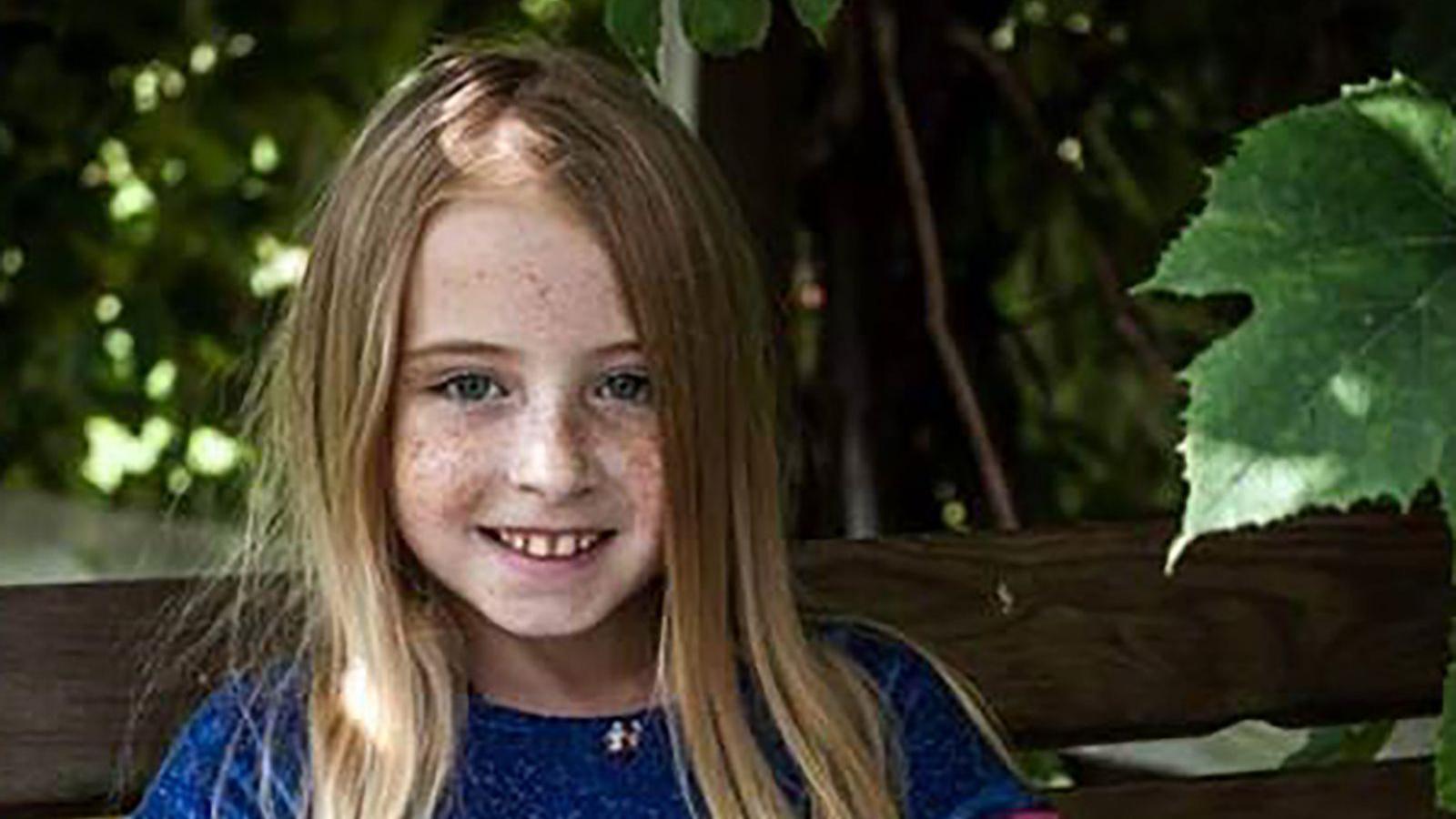
During the investigation, prosecutors discovered that in 2018, McCartney messaged 12-year-old Cimarron Thomas in West Virginia, USA. After complimenting her and getting a picture, he began his campaign of abuse.
He demanded more pictures of her and threatened to put her pictures online and expose her if she did not do what he said.
Scared, she did not tell anyone what was happening to her.
She went on to shoot herself in the head with her family's legally held firearm while still online with McCartney.
Tragically, 18 months later, Cimarron's father Ben took his own life. When he died, he did not know the reason why Cimarron had taken hers.
If you have been affected by any of the issues raised in this article, support is available via the BBC Action Line.
Related topics
- Published26 October 2024
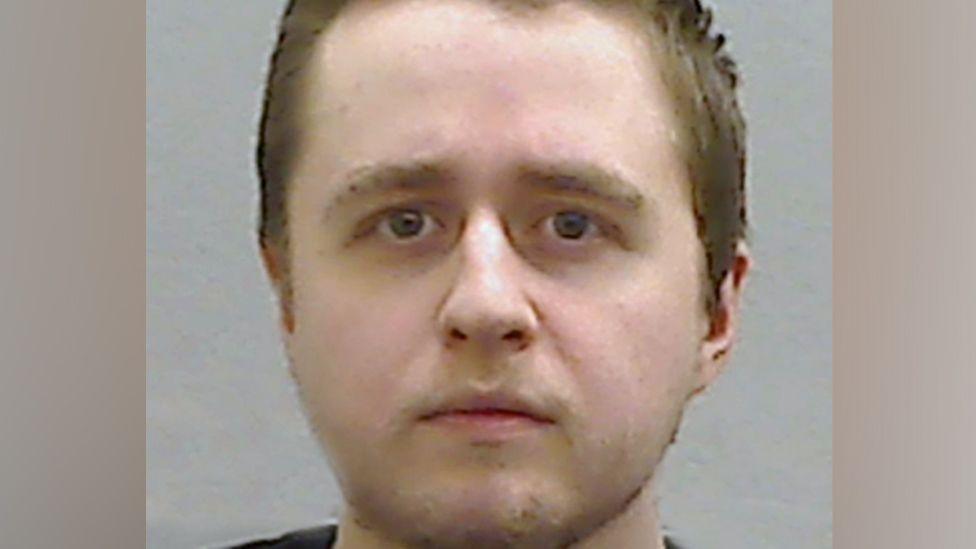
- Published25 October 2024
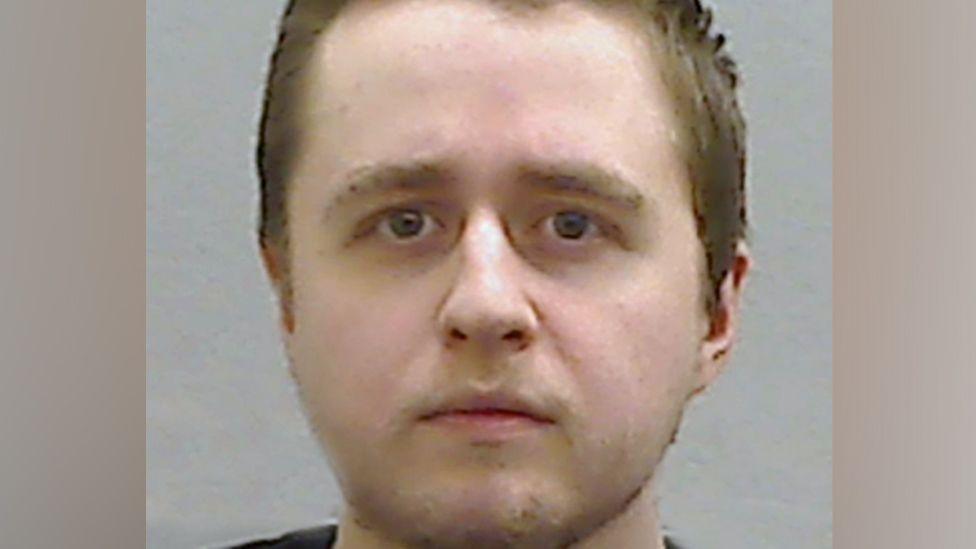
- Published25 October 2024
